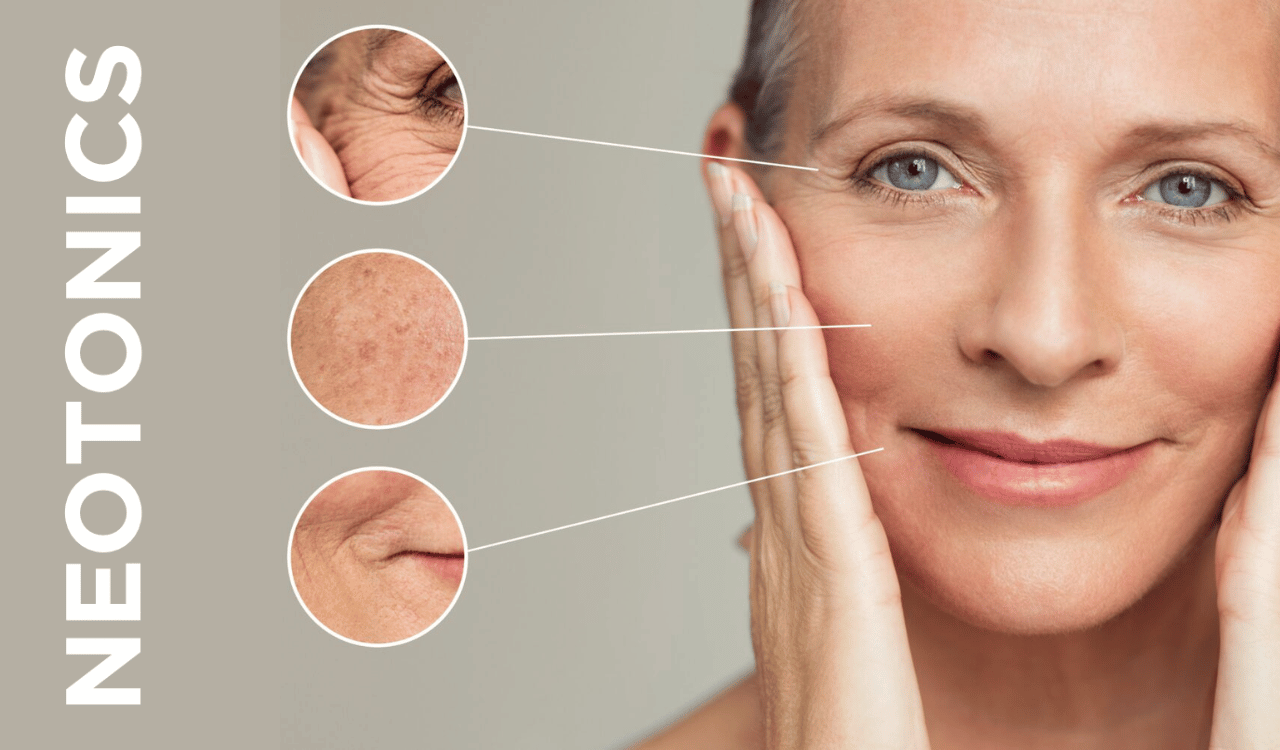The Role of Gut-Friendly Bacteria in Supporting Youthful Skin


In recent years, scientific understanding of skin
health has shifted from a surface-level approach to a more internal, holistic perspective.
Central to this new view is the gut microbiome—a dynamic ecosystem of trillions of bacteria
residing in our digestive tract. Among these microorganisms, gut-friendly bacteria, also known
as probiotics, have emerged as powerful allies in the pursuit of youthful, radiant
skin.
While skincare products still play a role in hydration and protection, more
dermatologists and nutritionists are now recognizing that true skin rejuvenation often starts
deep within the digestive system. This article explores the pivotal role that probiotics play in
maintaining skin youthfulness, the science behind their benefits, and how you can optimize your
gut microbiome to support long-term skin vitality.
The connection between the gut and skin—known as the
gut-skin axis—is based on the interaction between the immune system, the microbiome, and
inflammatory pathways. When the gut microbiome is balanced and diverse, it helps regulate
inflammation, absorb nutrients efficiently, and maintain a strong intestinal barrier. All of
these mechanisms play crucial roles in how the skin functions and appears.
Conversely, an
imbalanced gut, often due to poor diet, stress, antibiotics, or environmental toxins, can lead
to systemic inflammation, poor nutrient absorption, and immune system dysregulation. These
disturbances often manifest as skin concerns like acne, premature aging, rosacea, or
eczema.
A review published in Experimental Dermatology
emphasizes that gut microbiome imbalance contributes to oxidative stress and chronic
inflammation—both central to accelerated skin aging.
1. Enhancing Nutrient
Absorption
Probiotics improve
the bioavailability of essential vitamins and minerals—particularly those that are skin-critical
like vitamin C, biotin, zinc, and vitamin E. These nutrients are necessary for collagen
synthesis, skin repair, and maintaining hydration levels. When your gut is healthy, your skin
receives the nourishment it needs to stay supple and firm.
2. Reducing Systemic
Inflammation
Low-grade chronic inflammation, often originating in the gut,
is a silent skin ager. Probiotics such as Lactobacillus rhamnosus and Bacillus coagulans have been shown to
reduce inflammatory cytokines and increase anti-inflammatory metabolites. A study in the Journal
of Microbial Ecology in Health and Disease showed that supplementing with probiotics
significantly decreased markers of systemic inflammation.
3. Supporting Collagen
Integrity
Collagen is the primary structural protein in the skin that
maintains its firmness and elasticity. Inflammation, oxidative stress, and nutrient deficiencies
can accelerate collagen breakdown. By stabilizing the gut environment, probiotics help reduce
these collagen-degrading processes.
Additionally, a study published in the Journal of
Clinical Nutrition found that participants who consumed probiotics had higher skin hydration
levels and greater elasticity compared to those who did not.
4. Managing Acne and
Sebum Production
Probiotics can help moderate sebum production by
influencing hormonal balance and reducing inflammation. An overgrowth of harmful bacteria in the
gut can lead to dysbiosis—a microbial imbalance that contributes to hormonal breakouts,
especially in the jawline and cheeks.
According to a 2018 review in Frontiers in
Microbiology, restoring gut microbiota with probiotics leads to a noticeable reduction in acne
symptoms.
Lactobacillus rhamnosus: Known for reducing
inflammation and improving eczema symptoms in both children and
adults.
- Bifidobacterium longum: Enhances skin barrier
function and hydration.
- Lactobacillus paracasei: Helps reduce skin
sensitivity and UV-induced damage.
- Bacillus coagulans: A spore-forming
probiotic that survives stomach acid and supports both digestion and skin clarity.
Each
of these strains works in slightly different ways but collectively supports a more balanced
immune system and a resilient, hydrated skin barrier.
Although the science is compelling, anecdotal
experiences further reinforce the gut-skin connection. Individuals who begin taking
probiotic-rich foods or supplements often report:
- Fewer
breakouts
- More even skin tone
- Reduced
puffiness and redness
- Improved hydration and skin
glow
- Better digestion and less bloating
To harness the benefits of probiotics for skin
health:
1. Incorporate Fermented Foods: Yogurt, kefir, sauerkraut,
kimchi, miso, and kombucha are all probiotic-rich.
2. Avoid Overuse of
Antibiotics: These can disrupt microbial balance.
3. Cut Down on
Sugar and Processed Foods: Harmful bacteria feed on sugar, causing
dysbiosis.
4. Manage Stress: Cortisol can alter gut bacteria and
increase gut permeability.
5. Hydrate Well: Water helps flush toxins and
supports digestive function.
6. Use Prebiotic Foods: Garlic, onions,
leeks, bananas, and oats help fuel your microbiota.
The connection between gut-friendly bacteria and
youthful skin is no longer speculative—it’s supported by a growing body of clinical evidence. By
supporting your gut microbiome with the right strains of probiotics, you can reduce
inflammation, enhance nutrient absorption, and improve your skin’s texture, tone, and
elasticity.
While topical skincare remains
helpful, the real transformation happens when you care for your skin at the source: your gut. A
balanced microbiome is the foundation for lasting beauty that no cream or serum can replicate.